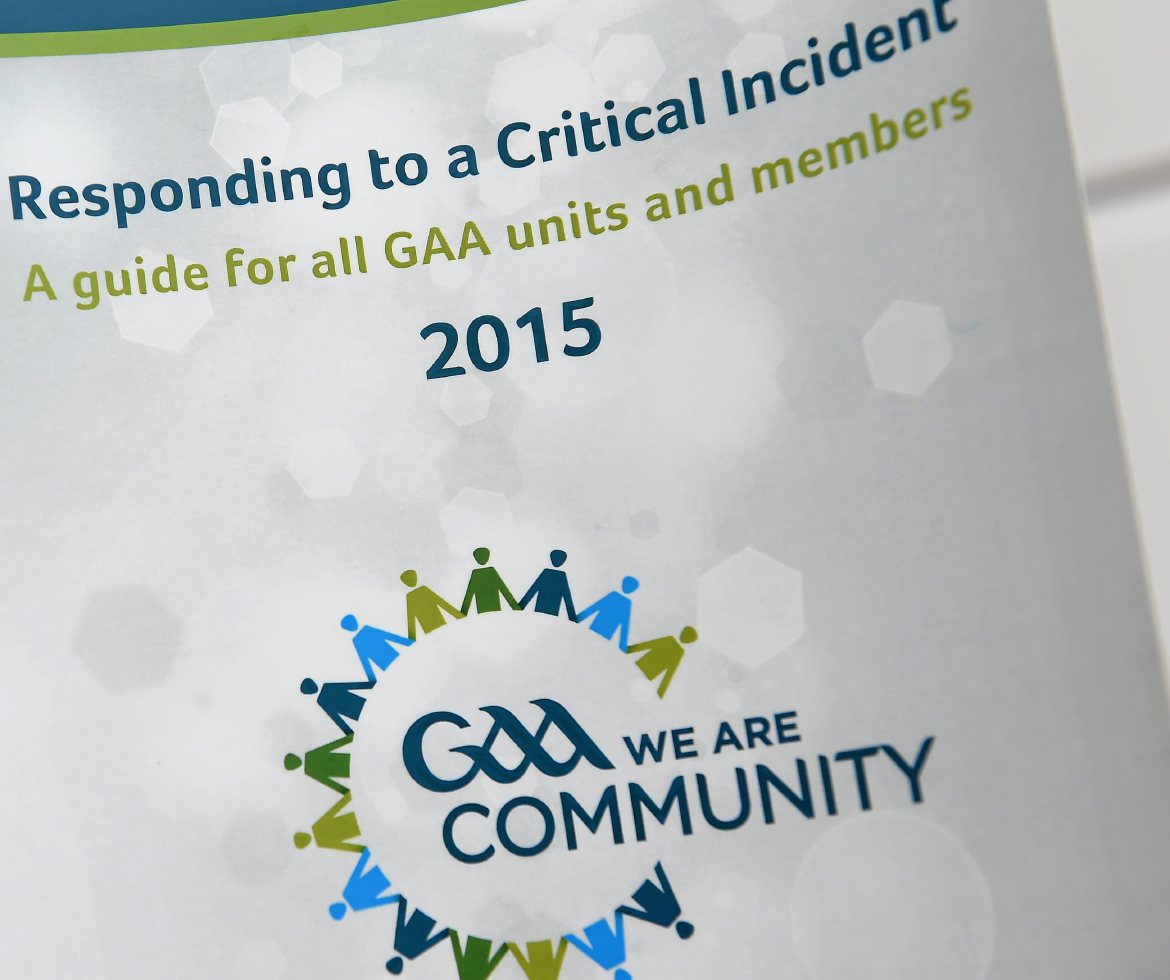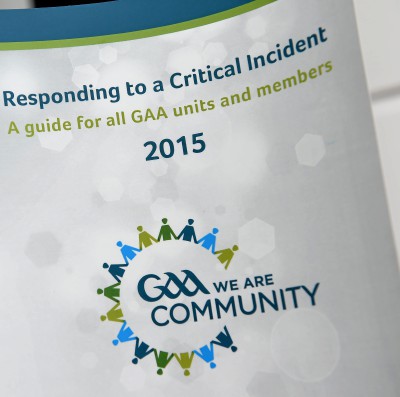AN important programme within the health and wellbeing arm of the GAA is a club’s response during a time of crisis. The Critical Incident Response Plan (CIRP) although developed by the Community & Health Department of the GAA, is a plan which the club executive is responsible for overseeing.
This programme is currently being reviewed by the national Community & Health Department and expert partners, with training to be available in the autumn. In the interim clubs are reminded to commit time to having their own plan in place.
What is a CIRP?
It is a template developed by experts in the field, which aims to equip clubs and counties with a pre-agreed response to critical incidents which may, unfortunately, occur in our clubs and communities.
Unfortunately, there will be times when a club or community will be affected by a particularly challenging situation – what we call a ‘critical incident’. A ‘critical incident’ is defined as a situation that overwhelms a person’s natural capacity to respond. Certain situations, due to their severity or complexity, can overwhelm a club or county’s natural capacity to respond. The Critical Incident Response Plan (CIPR) has been developed to assist clubs deal with just that – extreme situations which may overwhelm a club’s natural capacity to respond.
We are all aware of the invaluable support which GAA clubs offer in times of loss.
Clubs can quite easily rally in relation to arrangements for wakes and funerals; and more generally for the social network our clubs provide within communities.
GAA clubs up and down the country will continue to provide this crucial support, as it is what we do best. Obviously Covid restrictions have meant that some normal aspects of our ability to respond have had to change, but nonetheless the GAA continues to perform this vital function when families and communities are most in need of support.
No guide or plan can account for every possible scenario, however, the CIRP aims to highlight some key principles, roles, duties, and support systems that will better enable a club make its way through the most difficult of times.
The resource will support our units in such times by reassuring them and offering a pre-planned response which will minimise the negative impact of the situation, and give the best support possible to those most in need.
The resource – ‘A Guide for all GAA Units and Members when Responding to a Critical Incident’ – is available to download at Ulster GAA health & Wellbeing
The aim of the guide is to help GAA units at all levels to:
• Better understand what a critical incident is.
• Develop and maintain their own critical incident response plan.
• Follow recommended practices when supporting community responses to critical incidents to the best of their capacity.
• Ensure a consistency of care for all members following an incident regardless of the situation/location.
• Identify and access the range of national and local support services that are available to them in such circumstances.
Preparing a CIRP in advance will better prepare GAA units for the challenges such situations may present.
Although it is something no club wishes to have to use, it is worth taking the time to plan your response should the worst happen. Feedback from clubs who have had to implement their CIRP have found it to be invaluable in dealing with the critical incident which their club faced.
It is also very important that the CIRP is reviewed immediately after a club AGM or county convention so that it is updated to reflect new officers.
l For more information contact Community & Health Manager Maura McMenamin on maura.mcmenamin.ulster@gaa.ie
Receive quality journalism wherever you are, on any device. Keep up to date from the comfort of your own home with a digital subscription.
Any time | Any place | Anywhere













